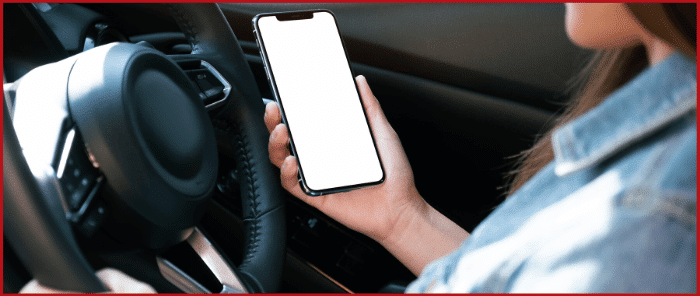From 1 July 2020, new ‘two-tiered’ penalties are set to be introduced in WA that more than double the current maximum fine for using a mobile phone while driving.
Drivers found to be using their mobile phones are currently liable for fines up to $400, but from July this will increase to a maximum fine of $1,000 and a loss of four demerit points, or alternatively a maximum fine of $500 and a loss of three demerit points for the ‘lesser’ offence. This change will see WA matching Queensland as having the equal-harshest penalty in Australia for this offence. It would likely continue to be dealt with by way of infringement.
What does it mean to be driving and what activities are covered?
The details for the new two-tiered penalties under the Road Traffic Code 2000 (WA) are as follows:
- The maximum penalty of $1,000 and four demerit points will be imposed on drivers who are caught using their mobile phone for the purposes of ‘texting or emailing, using social media, watching videos or accessing the internet’
- The second lesser penalty of $500 and three demerit points will be imposed on any driver who simply touches their mobile phone while stopped at a traffic light, or where the driver holds a handset that they are using to take or continue a phone call at any time while they are driving, including while the car is stationary.
To avoid a breach of these laws, a person who takes a phone call while they are driving must:
- Have the mobile phone secured in a mounting affixed to the vehicle (and not be ‘holding’ the phone or handset); or
- If it is not so affixed, they must receive or terminate the call without touching the phone (ie by voice activation).
Under the Road Traffic Code, a mobile phone which is resting on a driver’s lap is still being ‘held’ for the purposes of that legislation.
There is often confusion on the part of the public as to what activities constitute ‘driving’. Movement of the vehicle is not required for a person to be ‘driving’. The Road Traffic (Administration) Act 2008 (WA) defines driving very broadly as having control over the steering, movement or propulsion of a vehicle (s 4). This means that driving includes being stationary with the motor running, and that activities such as stopping roadside or waiting in a car park with the engine turned on is technically driving for the purposes of these laws.
A vehicle must be legally parked, with the motor turned off, before a driver can legally hold a mobile phone.
What if my passengers are using their mobile phones?
Some people may have heard of the Sydney driver who was fined in June 2019 because her passenger was on FaceTime. In WA, the position in the Road Traffic Code under r264 is that a driver shall not drive a motor vehicle that has a ‘television receiver’ or ‘visual display unit’ while the vehicle is moving, or stationary but not parked – where any part of the screen is visible to the driver or is likely to distract another driver.
What this means is that so long as the driver is not actively engaging with the FaceTime call, taking selfies, or otherwise in a position to be distracted by a passenger’s mobile phone, they are unlikely to be penalised for a passenger using their mobile phone.
The Minister for Police has likened the increased $1,000 penalty and the implications of driving while distracted to the consequences of careless or reckless driving. The increased penalties are aimed at reducing risk-taking behaviour while driving in the context of mobile phone distraction.
How HHG can help
If you need any assistance with your traffic law matters, our criminal law team are always available to help you with any questions that you may have. If you require any further advice or assistance regarding your obligations and rights, please contact Lisa Riley on 1800 609 945 or email us.


